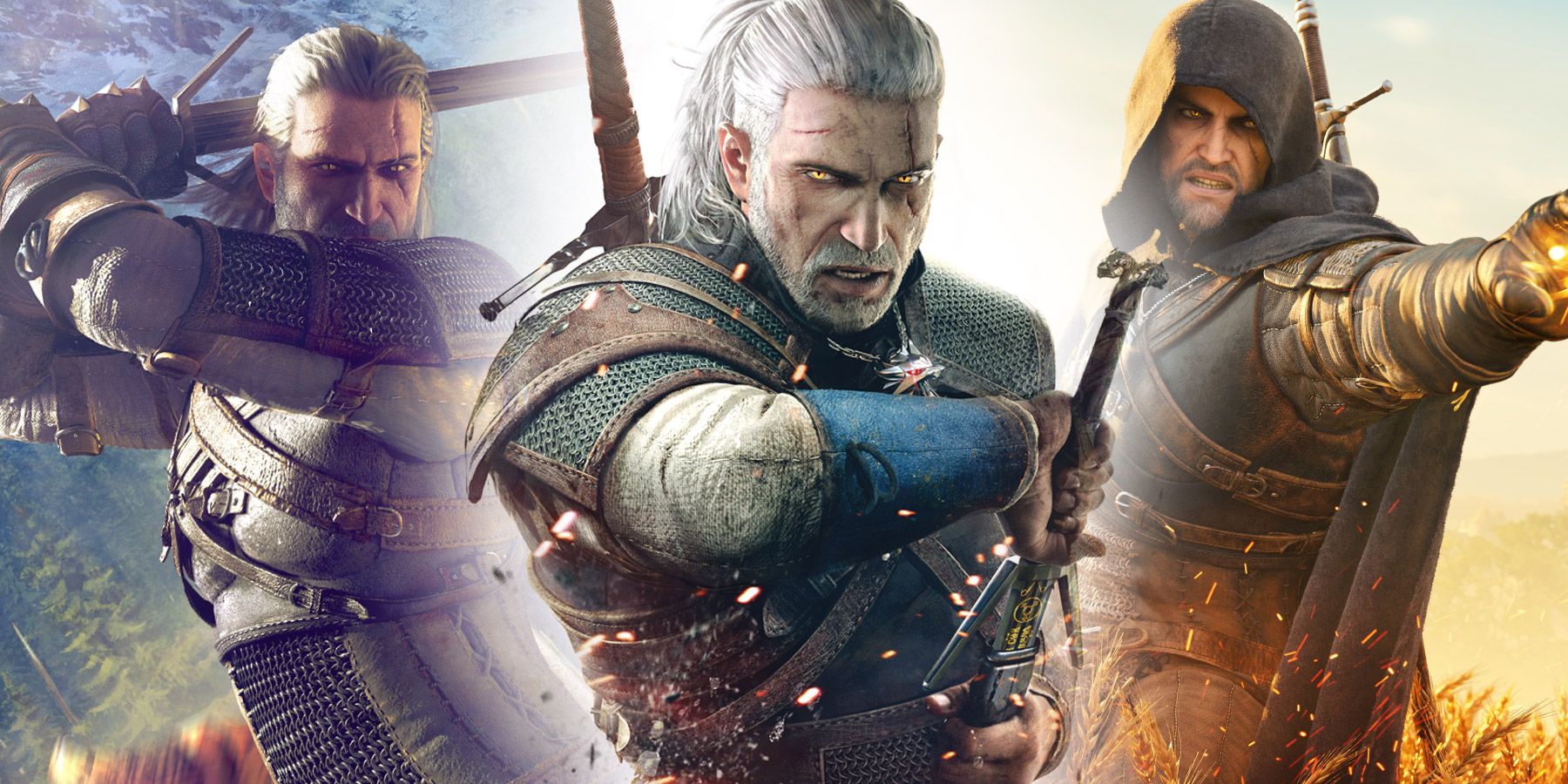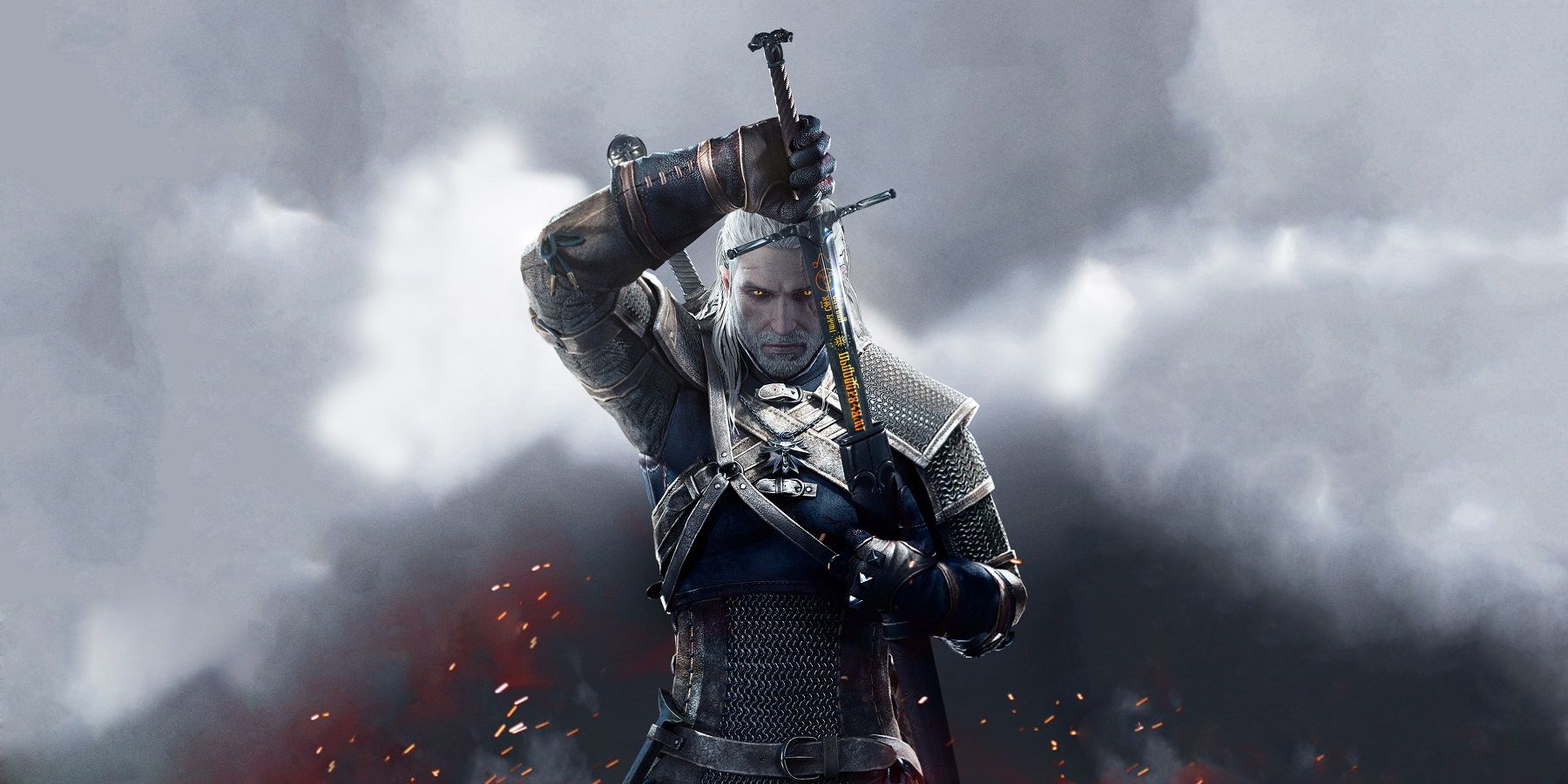Geralt of Rivia is the main character of The Witcher 3: Wild Hunt and one of the most popular protagonists in gaming today. That’s due, in part, to The Witcher 3 being an excellent game. The great narrative as well as the cast of characters play off the protagonist very well. However, Geralt’s status as a beloved protagonist is also thanks to his personality.
Now, the fact that Geralt is such a compelling protagonist is a feat in itself for CD Projekt Red. This is because he was never a blank slate but an established character from the original Witcher book series. As such, crafting a likable video game protagonist that stayed true to that established personality while still offering player choice deserves praise, and it is part of that established personality that drew the love of many The Witcher 3 fans.
Why Players Love Geralt of The Witcher 3: Wild Hunt
One of the most obvious answers is Geralt’s humor and his deadpan delivery — from musing about taking on a pan contract to telling a long-deceased ghost to f-off. It makes the game’s dialogue much more engaging. That said, Geralt’s amusing lines aren’t exclusively sarcastic quips, as there are other rare occurrences where he actually tries to be funny. Case in point: His pun-filled banter with Yennefer while they’re in Freya’s Garden for The Witcher 3 quest “In Wolf’s Clothing.”
Comedy aside, Geralt is also a pretty complex protagonist, which makes him more intriguing as a character. He’s not a hero, but also not quite a villain in The Witcher 3. In his words, he’s a freak, and he just so happens to be looking for someone important to him on the vast Continent. Moreover, the game’s quests often present morally gray choices, giving the player — and, by extension, Geralt — a more nuanced sense of right and wrong.
For instance, throughout the game, Geralt leans heavily on Witcher principles, such as accepting coin for Witcher 3 monster contracts and remaining neutral in political situations. However, the player is also given the choice to go against these rules. There are contracts where Geralt can refuse payment for the sake of the quest-giver. Later in the game, there are even political subplots that the player can play an active role in. Geralt could go so far as assassinating a king for the good of the Northern Realms.
At the end of the day, this shows that Geralt isn’t the heartless monster slayer he claims to be. He clearly cares for people. The supposedly emotionless Witcher exhibits sympathy in the face of strangers down on their luck (at least, if the player chooses to). Moreso, Geralt is intent on protecting the people in his inner circle. This is especially apparent when it comes to matters involving Ciri of The Witcher 3.
In fact, the entire premise of The Witcher 3’s main quest revolves around Geralt finding Ciri because he loves her. And the game portrays their father-daughter relationship excellently. Geralt can choose to accompany Ciri on dangerous missions and expresses his affection in simple ways throughout the events of the game — especially in the game’s Witcher Ciri ending.
Geralt isn’t the typical heroic protagonist out to save the universe with their benevolent ways. When he set out to find Ciri and save her from the Wild Hunt in The Witcher 3, he wasn’t looking to be a hero. He even made use of less-than-ethical means to learn of her whereabouts. Ultimately, Geralt just wanted to save his adopted daughter, whatever the cost — and it’s that love and determination that makes him a protagonist worth rooting for, among other things.
The Witcher 3 is available now on PC, PS4, Switch, and Xbox One.


